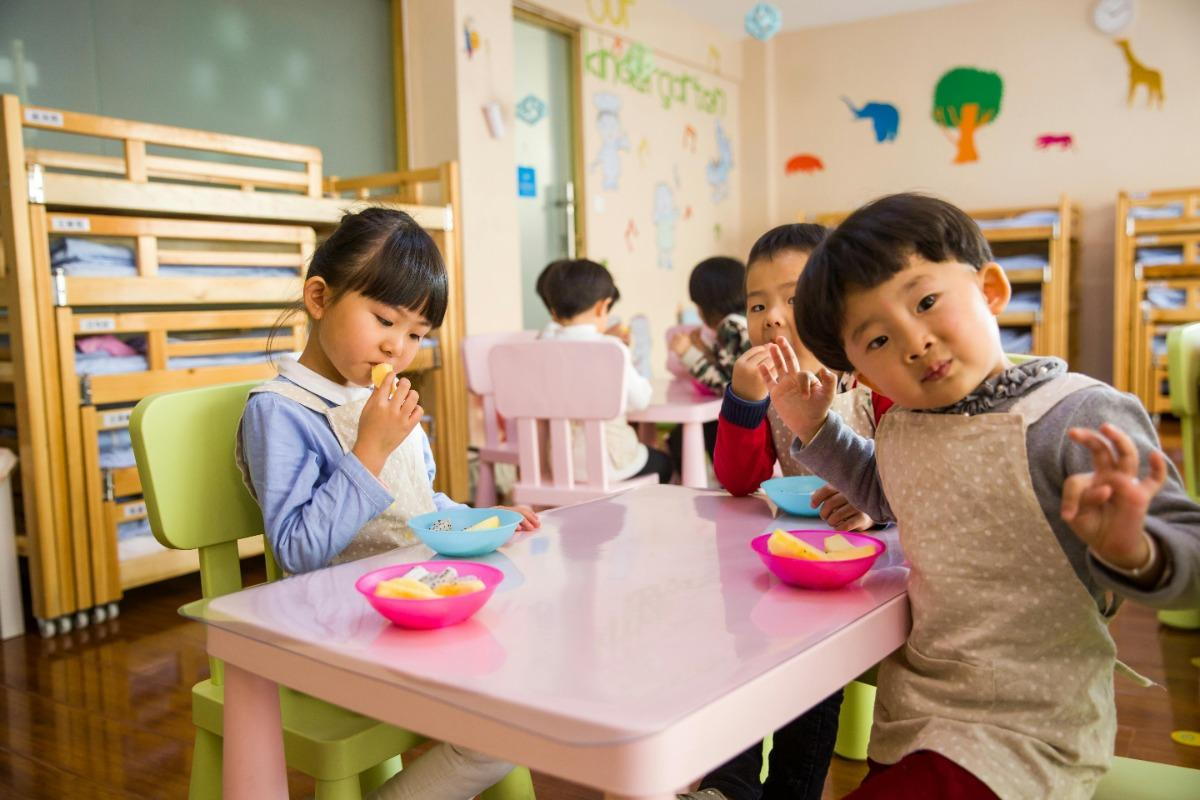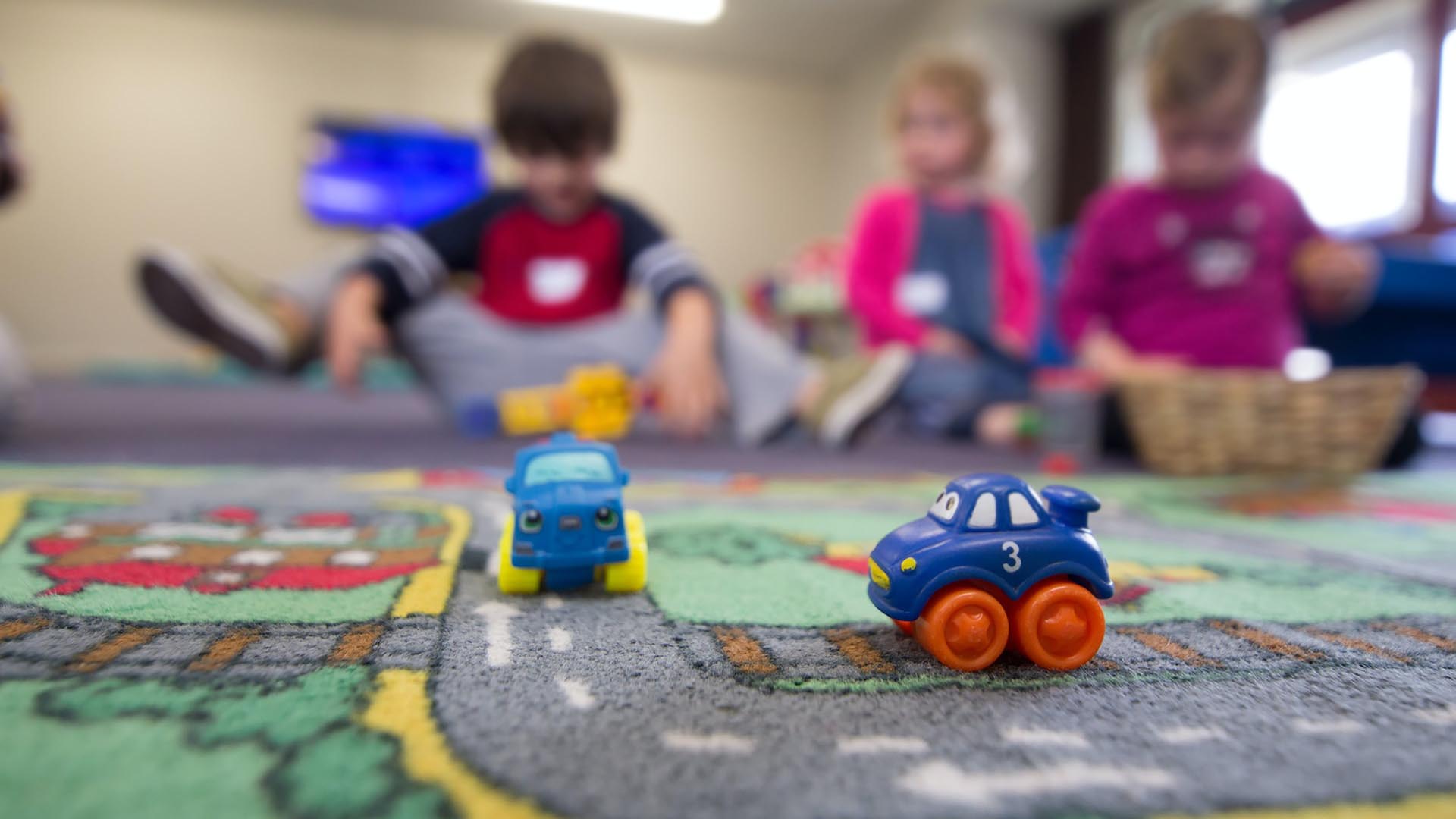Economical Toddler Daycare Near Me: Perfect Take Care Of Your Growing Youngster
Economical Toddler Daycare Near Me: Perfect Take Care Of Your Growing Youngster
Blog Article
The Role of Childcare in Cultivating Your Young child's Psychological and Cognitive Abilities Through Structured Play and Educational Tasks
The role of childcare in nurturing a kid's emotional and cognitive development is typically taken too lightly, yet it serves as a crucial atmosphere for structured play and academic activities. With thoroughly developed experiences and interactions, caretakers facilitate essential skills such as psychological awareness and analytic.
Relevance of Structured Play
Structured play is a vital part of toddler growth, as it offers a structure via which kids can take part in significant communications and discovering experiences. This kind of play is intentionally made to foster different developmental abilities, such as cognitive, social, and physical capacities. By taking part in organized tasks, kids learn to comply with policies, take turns, and accept peers, every one of which are essential for their social skills.

Additionally, structured play often incorporates instructional aspects, such as counting, color acknowledgment, and language development, seamlessly incorporating discovering right into enjoyable tasks. This technique not just catches young children' interest yet also enhances important principles in a pleasurable manner. In general, structured play contributes in advertising a well balanced advancement, gearing up toddlers with the foundational skills essential for future knowing and social interactions.
Emotional Development in Daycare
Day care environments play a vital function in fostering emotional growth in young children. These setups provide youngsters with opportunities to connect with peers and caretakers, facilitating the advancement of crucial social-emotional skills. With routine communications, young children find out to acknowledge and express their feelings, such as pleasure, despair, or aggravation, which is essential for their emotional maturity.

Moreover, the structured atmosphere of day care permits kids to experience a variety of feelings in a secure room. They find out to manage feelings of separation stress and anxiety when transitioning from home to childcare and establish resilience as they browse new connections and experiences. Generally, the psychological advancement cultivated in childcare not just benefits young children during their developmental years but additionally lays the foundation for healthy and balanced interpersonal relationships and emotional well-being throughout their lives.
Cognitive Abilities With Tasks
With participating in a variety of tasks, young children in daycare setups can dramatically improve their cognitive abilities. Structured play and academic jobs are crucial in promoting cognitive growth, as they offer opportunities for exploration, analytic, and vital thinking. Tasks such as puzzles, building blocks, and memory video games challenge kids to believe artistically and rationally, promoting essential skills like spatial awareness and pattern acknowledgment.
Additionally, interactive storytime sessions urge language development and understanding. By paying attention to stories, young children discover to refine info and involve their creativities, which improves their narrative skills and vocabulary. In addition, hands-on activities including crafts and arts promote great electric motor abilities while also urging self-expression and creativity.
Sensory play, such as sand or water activities, allows young children to try out various textures and products, promoting inquiry-based knowing. These experiences not only boost cognitive abilities however likewise infuse a sense of curiosity regarding the world around them - daycare great post to read for infants near me. In general, the diverse series of cognitive activities offered in day care settings plays a crucial function in forming a young child's capability to think critically, fix issues, and involve meaningfully with their environments
Social Connections and Interaction
In a caring setting, young children normally forge social links and participate in interactions that are vital for their psychological and interpersonal growth. Childcare settings give a distinct chance for kids to interact with peers, fostering essential social skills such as sharing, participation, and dispute resolution. These communications assist kids discover to browse their emotions and comprehend the point of views of others, which are critical elements of psychological knowledge.
With structured play and group tasks, toddlers are motivated to communicate their thoughts and feelings, enhancing their verbal skills and advertising empathy. Involving with peers additionally presents them to diverse social standards and behaviors, enhancing their understanding of social dynamics. Additionally, consistent interaction with other youngsters aids to develop a feeling of neighborhood, supplying an assistance system that is beneficial for emotional growth.
As young children join collective jobs, they find out the value of team effort, persistence, and negotiation. These fundamental social abilities are critical as they prepare for future connections, both in academic setups and beyond. Inevitably, the social links created in childcare play a considerable function in forming a kid's capacity to interact favorably and properly with others throughout their lives.
Duty of Caregivers in Growth

Caretakers play a crucial role in cultivating toddler advancement, especially in the context of the social interactions they experience in childcare setups. These professionals provide a nurturing atmosphere where toddlers can explore their feelings and cognitive capacities via structured play and educational activities. By involving in meaningful discussions, caregivers sustain language advancement and boost social skills.
In addition, caretakers version psychological feedbacks and suitable habits, helping kids learn empathy and problem resolution. Their visibility additionally develops a feeling of safety, which is crucial for children to confidently discover their surroundings and involve with peers.
Along with social and psychological support, caretakers are instrumental in executing why not find out more instructional curricula that advertise cognitive development - infant daycare near me. They present age-appropriate activities that promote interest, important thinking, and problem-solving skills. This structured method makes certain that young children not just appreciate their playtime yet also obtain foundational knowledge essential for future understanding
Ultimately, the high quality of caregiver communications dramatically influences a young child's total advancement. By promoting a interesting and helpful ambience, caretakers help lay the groundwork for healthy emotional and cognitive growth, gearing up children with crucial abilities for their long-lasting journey.
Final Thought
Finally, day care serves as a vital atmosphere for promoting cognitive and emotional growth in toddlers. With structured play and , youngsters experience considerable growth in their capacity to acknowledge and express emotions, establish vital assuming skills, and kind necessary social links. The duty of caretakers is critical in promoting these experiences, guaranteeing that each kid take advantage of a nurturing ambience that promotes lifelong psychological well-being and cognitive advancement.
The function of daycare in nurturing a toddler's emotional and cognitive development is frequently taken too lightly, yet it serves as a critical environment for organized play and instructional tasks. Generally, structured play is crucial in advertising a balanced Full Article advancement, equipping young children with the fundamental skills required for future knowing and social communications.
Childcare settings play a vital function in promoting emotional advancement in toddlers. Overall, the emotional advancement fostered in daycare not only benefits toddlers throughout their developmental years but likewise lays the groundwork for healthy social connections and psychological well-being throughout their lives.
With structured play and group tasks, toddlers are motivated to interact their ideas and feelings, boosting their verbal skills and promoting compassion.
Report this page